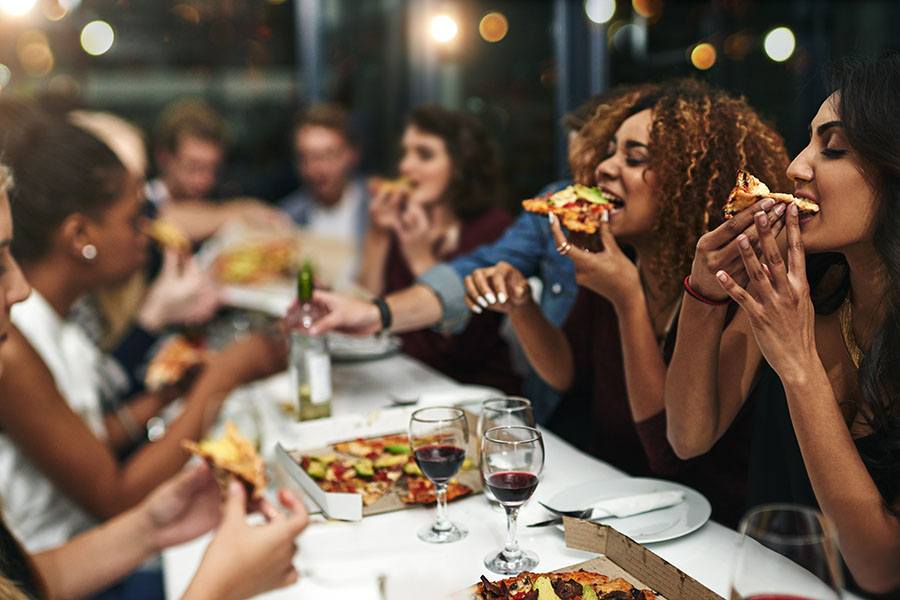Ask the Expert: Do Diets Even Work?
Maybe you don't have to be keto, paleo, or Whole30 to be considered healthy.

Photo via iStockphoto.com/PeopleImages
Our society is steeped in diet culture. We’re constantly being sold on a diet plan to help you “shed 10 pounds” or a workout routine that will finally “banish that stubborn back fat.” Everywhere we turn we’re inundated with the message that our bodies aren’t good enough the way they are right now and we won’t be happy until they’re different.
Yes, diets do work. Anything that creates a caloric deficit works. But diets give you a short-term solution to a long-term situation—you have to eat every day to stay alive. If you’re eating in an unsustainable way, it’s quite possible that when you reach the end of one diet, you’ll stumble right into another one. But remember as children when we ate when we were hungry, stopped when we were full, and (for the most part) ate our veggies before having dessert? Eating and nourishing our bodies really can be that simple. It’s just a matter of quieting the noise.
The principle of Intuitive Eating is a way to begin to quiet the noise. Essentially, it’s the practice of honing in on what your body is telling you it needs, in regards to food and nourishment. But it can be hard to implement. How do you break a cycle that’s been going on for quite some time? Or quite possibly, your entire life? We chatted with Robyn Nohling, a Boston-based registered dietitian and nurse practitioner who specializes in intuitive eating, to get a better sense of why diets don’t work and how to implement intuitive eating into our everyday lives.
Ask the Expert: Do Diets Even Work?
The answer: In the short-term, yes. But then you end up on a never ending roller coaster. A better option? Adopting intuitive eating.
The details:
“Intuitive eating is simplistic, but it’s also complex,” Nohling says. “It’s a philosophy that’s well-researched, not just an adjective used to describe the way in which someone eats. It’s a set of principles that bridge together mind knowledge and body knowledge to eat primarily based on internal body cues versus external cues. “
The premise hinges on these ten principles:
- Reject the diet mentality
- Honor your hunger
- Make peace with food
- Challenge the food police
- Feel your fullness
- Discover the satisfaction factor
- Cope with your emotions without using food
- Respect your body
- Exercise—feel the difference
- Honor your health with gentle nutrition
Nohling says the principles weren’t made as a step-by-step approach, but rather a framework that you can go back and forth on as your relationship with food ebbs and flows—you don’t have to master one before moving on to the next one. “The goal of intuitive eating is to come to a place to make food decisions not based on guilt or shame, but rather out of respect for your body and what is going to bring you the most pleasure and joy,” she explains.
Gentle nutrition is really the final step, though, because as you work through the other principles your mind might still be clouded with diet culture. And when diet culture says something is “bad” or “good,” it can be hard to quiet those messages. “[Diet culture] promotes a very narrow view of health and beauty and is based in morality when really, food and our bodies aren’t moral things,” Nohling says. Not to mention when we label something as “bad” our innate response is to crave it and to want more of it.
Intuitive eating is about taking a step back from this. It’s about surrendering to the fact that we aren’t bad for eating pizza and we’re not failures if our bodies don’t look a certain way. “Those are stigmatizing ways to view food and bodies,” Nohling says. And although it’s easy to think about this in terms of going back to the way we ate as children, she points out that it’s much more complex than that.
Nohling goes on to explain that intuitive eating comes back to something called the self attunement model, which is the practice of tuning into your most authentic self and honing in on our internal systems while closing out the external systems or messages that don’t actually serve us. So if you love pizza and diet culture has been telling you for so long that you can’t eat pizza, go ahead and have a slice. Then move on with your life. Practice removing feelings of morality from food, exercise, and the way you look in the mirror. “When we are able to stop blaming our body or food for our problems, we are able to have thoughts, feelings, and emotions that lead to a better quality of life,” Nohling says. “It’s a slow and painful process, I will tell you that, but one that is life-changing and very fulfilling.”


